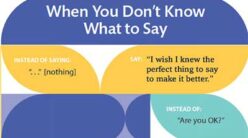Wish you had the willpower to drop unwanted pounds, quit an old habit, control your temper, or resist the addictive pull of social media? You’re not alone. Missing the mark is an ancient frustration. Fortunately, good habits can help you accomplish and overcome more than you might think.
Recognizing the Resource: What Is Willpower?
“Self-control is the overarching idea of willpower,” says Duke University professor Terrie E. Moffitt, Ph.D. Willpower includes things such as planning ahead, resisting temptation, and persisting in the face of discouragement.
And psychologist Roy F. Baumeister, Ph.D., author of the New York Times best seller Willpower: Rediscovering the Greatest Human Strength, says willpower is like a muscle. The more you flex it, the more power of resolve you experience. Baumesiter explains that, essentially, willpower is a form of mental energy.
How to Develop Willpower Instead of Won’t-Power
If you’re tired of wanting something but never actually achieving it, it’s time to give up that won’t-power and replace it with willpower. Here’s how to start practicing the kind of self-control that leads to success:
1. Be optimistic . . . and a little pessimistic . . . and a little realistic
Most folks strategize by utilizing pie-in-the-sky positivity. But according to research, a tiny bit of pessimism (or should we say, realism?) helps produce more effective planning. In other words, imagining how your efforts could derail can reveal details that will help you know what not to do in order to achieve your intentions. For example, admitting, “I’ll probably skip exercise class if I run a bunch of errands after work,” clearly shows how you can avoid self-sabotage.
In her book The Willpower Instinct, health psychologist Kelly McGonigal, Ph.D., confirms that positive thoughts can motivate us. But she cautions that focusing too much on success may lead us to feel so good about progress that we start slacking (e.g., overeating to celebrate weight loss). That’s where balanced thinking comes in: a little optimism mixed with a little realism seems to be the combination that gets the best results.
2. Stay in the moment
McGonigal encourages focusing your thoughts on the present moment—not thinking about your busy day, planning the weekend, or remembering to vacuum the rug. Whether it’s repeating a simple prayer, or taking some deep breaths, simple practices can help you stay present in the moment. Not only will it increase your willpower, but it also can help relieve stress, develop focus, and give your brain a little boost of calm energy.
3. Make a list—and check it twice or three times . . .
Baumeister and his colleagues found that keeping track of what you want to change is beneficial, either by writing it down or recording online. In one study, when participants set deadlines and accomplished the tasks on their to-do lists for a two-week period, they also improved their diets, exercise, and cut back on vices, as well. Amy Morin, L.C.S.W., a therapist and author of the book 13 Things Mentally Strong People Don’t Do, also recommends making a list of all of the reasons why you should stay on track. Reading the list when you’re low on willpower can balance your emotions with a bit of logic.
4. Form healthy habits
Researchers have found that eating a healthful diet with fewer processed foods fuels your self-control, because your brain responds to spikes in blood glucose. In fact, researchers in Israel found that court judges granted parole in about 65 percent of cases after lunch, but were much less lenient just before eating, adding to the evidence that letting yourself get too hungry or under-nourished (crash diets, we’re looking at you) wreak havoc with mental and emotional well-being. But diet isn’t the only lifestyle practice that affects self-control. Scientists discovered an essential key in preventing relapse in recovering drug addicts—and it will also help you to make the right choices on a consistent basis. What is it? Getting more than six hours of sleep every night. You may have guessed that exercise also helps build your willpower muscles. An Australian study showed that volunteers who completed a two-month exercise program experienced stronger willpower in nearly all other areas of life. When we ignore these healthy lifestyle fundamentals, the prefrontal cortex in our brains is hindered from nudging us toward our long-term goals. The good news is, Baumeister’s studies have shown that once a good habit is in place, it becomes routine and no longer zaps your willpower. More proof of the power of healthy habits: a Columbia University study revealed that women who suffer from anorexia—a group of people often thought to have extraordinary willpower—found that it wasn’t willpower that caused them to maintain their extreme diets, but well-entrenched habits. Our brains are so powerful that we can actually rewire our reward system. Instead of using it to reinforce destructive behaviors, we can use that energy to create habits of health, wellness, and productivity.
5. Get comfortable being uncomfortable
Several studies have shown that willpower comes when we’re willing to persist through uncomfortable or unnatural situations. In one study, people used their non-dominant hand to take the lead in everyday activities. In another, participants endeavored to have better posture. Both tests resulted in participants having stronger willpower (as well as being more ambidextrous and having straighter backs). When the urge to “slump” and give in is beginning to wear you down, remember that you don’t have to act on every impulse or emotion. Instead of trying to ignore the unpleasant emotions that strike when your willpower seems to be failing, abide with those uncomfortable feelings, and have confidence that they will pass. Saying yes to temporary discomfort is how you say yes to what you really want long-term.
6. Think ahead with “if-then” statements
Psychologists suggest having an “if-then” statement at the ready for your areas of temptation. For example, supposing you’re trying to live within your budget, you might say, “If my shopaholic friend calls, then I’ll suggest we walk in the park instead of the mall.” In addition to building willpower, you’re also practicing new habits. That means that you’re making headway toward change.
Baumeister says that willpower fluctuates. Learn to recognize when your self-control may be flagging, and hit the reset button. It’s possible that eating a snack or taking a walk or a short nap can refresh your good decision-making.
Michele Deppe is a Seattle-based freelance writer who frequently exercises her willpower over pastries.






